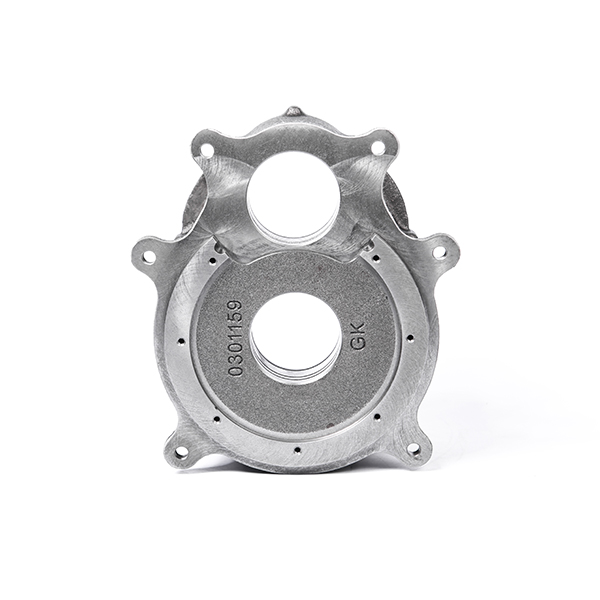Mobile:+86-311-808-126-83
Email:info@ydcastings.com
hot isostatic pressing aluminum castings
Hot Isostatic Pressing of Aluminum Castings Enhancing Properties and Performance
Aluminum castings play a pivotal role in a variety of industries, including aerospace, automotive, and manufacturing, due to their lightweight and excellent strength-to-weight ratio. However, traditional casting techniques can sometimes lead to defects such as porosity, inclusions, and reduced mechanical properties. To address these issues and enhance the performance of aluminum castings, hot isostatic pressing (HIP) has emerged as a crucial post-processing technique.
Understanding Hot Isostatic Pressing
Hot isostatic pressing is a sophisticated manufacturing process that combines heat and isostatic gas pressure to improve the density and mechanical properties of materials. The process involves placing the aluminum castings in a high-pressure chamber filled with an inert gas, typically argon, along with applying heat to reach specific temperatures that permit material flow and stress relief.
During HIP, the castings are subjected to uniform pressure on all surfaces, which encourages the closing of porosity and the fusion of microstructural defects. This results in a more homogeneous material, significantly improving the mechanical properties of the aluminum castings.
Benefits of HIP for Aluminum Castings
1. Reduction of Porosity One of the primary benefits of HIP is the substantial reduction of porosity in aluminum castings. Porosity not only affects the aesthetic quality of the castings but also compromises their mechanical strength. By eliminating or significantly reducing this porosity, HIP ensures that castings exhibit improved structural integrity.
2. Enhancement of Mechanical Properties The application of heat and pressure during the HIP process results in a refined microstructure. This refinement enhances the yield strength, tensile strength, and fatigue resistance of aluminum castings. Additionally, the improved surface finish due to densification also contributes to better performance in applications subject to wear and corrosion.
3. Improved Dimensional Stability Aluminum castings processed with HIP exhibit improved dimensional stability. The stress relief afforded by the HIP process minimizes the risk of distortion during further machining operations or service conditions, ensuring that components maintain their intended geometrical specifications.
hot isostatic pressing aluminum castings

4. Extended Lifecycle and Reliability The enhanced properties achieved through HIP translate to longer service life and greater reliability of components. This is particularly important in high-stakes industries such as aerospace and automotive, where the failure of a single component can result in significant repercussions.
5. Cost-Efficiency in Manufacturing Although the initial investment in HIP technology can be substantial, the long-term benefits often outweigh the costs. With improved mechanical properties and reduced material wastage due to reduced defects, manufacturers can achieve cost savings and increased profitability over time.
Applications of HIP in Aluminum Casting Industries
Industries utilizing aluminum castings have increasingly adopted HIP as a means to meet stringent requirements for performance and reliability.
- Aerospace In aerospace applications, where weight reduction is critical without compromising strength, HIP-treated aluminum castings are used in components such as airframe structures, engine components, and landing gear.
- Automotive The automotive industry is utilizing HIP for high-performance engine components, transmission parts, and structural elements, enabling vehicles to achieve better performance while being lightweight.
- Medical Devices In the medical field, the demand for precision and reliability has led to the adoption of HIP for producing vital components such as surgical instruments and implants, where material performance is paramount.
Conclusion
Hot isostatic pressing has revolutionized the way aluminum castings are processed, offering substantial improvements in material properties and overall performance. As industries continue to strive for efficiency, reliability, and innovation, HIP will play an essential role in enhancing the capabilities of aluminum castings and ensuring they meet the demanding requirements of modern applications. By investing in HIP technology, manufacturers are not only refining their products but are also creating pathways toward more sustainable and efficient production processes. The future of aluminum castings, reinforced by HIP, promises to deliver greater performance and reliability across numerous sectors.
-
Why Should You Invest in Superior Pump Castings for Your Equipment?NewsJun.09,2025
-
Unlock Performance Potential with Stainless Impellers and Aluminum End CapsNewsJun.09,2025
-
Revolutionize Your Machinery with Superior Cast Iron and Aluminum ComponentsNewsJun.09,2025
-
Revolutionize Fluid Dynamics with Premium Pump ComponentsNewsJun.09,2025
-
Optimizing Industrial Systems with Essential Valve ComponentsNewsJun.09,2025
-
Elevate Grid Efficiency with High-Precision Power CastingsNewsJun.09,2025











